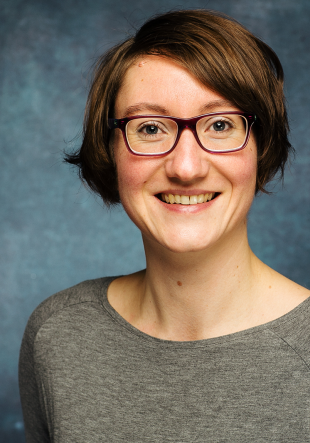Digital and networked systems for ecologically sustainable and future-proof mobility solutions in the transport sector - at Hannover Messe 2024 from 22 to 26 April, researchers from Paderborn University will be presenting technologies and concepts for sustainable developments that contribute to improving processes in passenger transport and logistics. After focusing on innovations in the automotive industry in recent years with the "NeMo" initiative and the "DiSerHub" project, this time the "FastGate" project will focus on digitalisation and optimisation on the airport tarmac. Another focus is on intelligent energy systems and 5G technology, which the SICP - Software Innovation Campus Paderborn is presenting in various projects. The focus will be on the question: How can complex technology be made understandable?
FastGate" project: Autonomy on the airport apron
International aviation is facing major challenges with regard to the fulfilment of the Paris climate protection targets. The aim of the "FastGate" research project is to reduce downtime, operating costs and CO2 and noise emissions by using alternative drives for the electric taxiing of aircraft and the automation of processes on the airport apron using the specific example of a passenger boarding bridge. Robust sensory approaches are being developed to record the airport apron, which will serve as the basis for creating a high-resolution map that will enable autonomous navigation and other services. The relevant information is collated in a digital twin of the airport apron and made accessible to the automated passenger boarding bridge and various users such as ground staff. To ensure efficient use of the automated system, a VR training environment is also being developed and aspects of technology acceptance are being analysed.
Project diversity at joint stands
It is not only the research that is interdisciplinary and networked, various collaborations and stand concepts also demonstrate the diversity of innovative approaches from the region. Alongside other exhibitors from East Westphalia-Lippe, Paderborn University will be represented on the education area of the OWL joint stand as well as on the stand of the state of North Rhine-Westphalia and on the joint stand of the Federal Ministry for Economic Affairs and Climate Protection (BMWK).
At the joint OWL stand, Paderborn researchers will be presenting the "5G Lernorte OWL" project, which is researching the possibilities of 5G technology for vocational training and developing specific learning scenarios for training. The project focuses primarily on industrial-technical and commercial professions, such as tool mechanics and industrial clerks. garage33, the start-up centre of Paderborn University, will also be presenting its successful start-ups in the start-up area of the OWL joint stand.
The "NeMo.bil" project will be exhibited at the BMWK stand as part of the Gaia-X project family, in which a mobility system consisting of cooperating vehicles is being developed for a new form of sustainable and needs-based passenger and goods transport in rural areas. To this end, a new systemic approach is being pursued which, for example, combines swarms of automated small lightweight vehicles designed to cover the first and last few miles into a convoy for longer distances, thus saving resources.
The SICP - Software Innovation Campus Paderborn will be represented at the NRW joint stand with three research projects relating to intelligent energy systems: The projects "AProSys" (AI-supported assistance and forecasting systems for sustainable use in intelligent distribution grid technology), "ESN4NW" (energy-optimised supercomputer networks through the use of wind energy) and "DC2HEAT" (use of waste heat from data centres), which deal with sustainable digital infrastructures, artificial intelligence and interactions in complex energy systems, will be presented. In addition to technical aspects, this year's focus is primarily on knowledge transfer and understanding: How can complex technologies and interdisciplinary research be improved and communicated in an understandable way? And how can more attention be drawn to important cross-cutting issues such as technology acceptance, computer science didactics and human-machine interaction? The SICP is tackling this task as well as many other challenges posed by digitalisation.
Innovative technologies such as augmented and virtual reality enable visitors to Hannover Messe to explore complex systems and understand how they work. With digital replicas, the representation of desired interactions and miniature versions from the 3D printer, they can explore how a data centre is integrated into a wind turbine and how the functional principle of heat dissipation is to be implemented. In this way, visitors can not only absorb information about the research projects, but also gain a deeper insight and a better understanding of the often complex topics.
Further information can be found on the trade fair website. Interested parties can also book a free trade visitor ticket (code 2024) via Paderborn University on the Hannover Messe website.
This text has been translated automatically.

